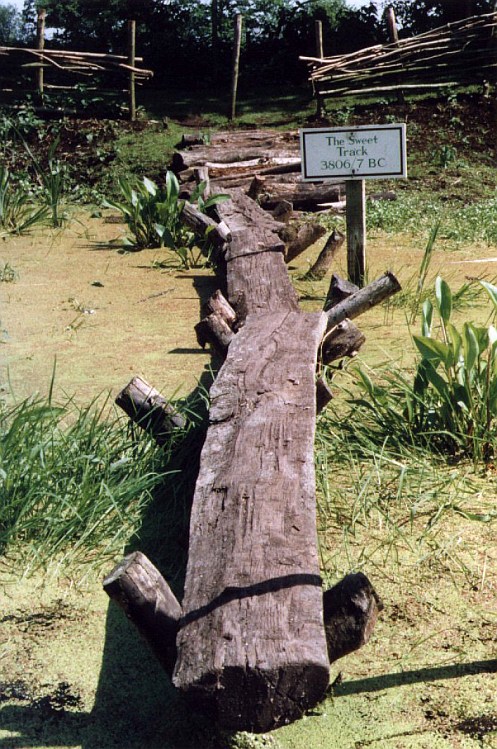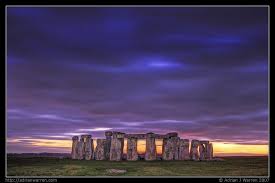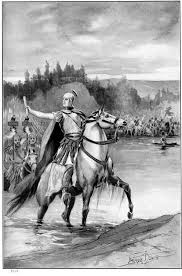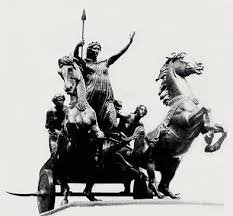I've been watching the meltdown of our government with mixed emotions. My Dad was a working class socialist who hated Tories with a class venom. We got "The Daily Mirror" every day, I sent for a copy of Mao's 'little red book' when I was sixteen and was told ten years later that I was still on Special Branch files.
What happened to Britain?
"Britain" came into physical being as a collection of islands after the last Ice Age, around 6000 BC. The melt water swamped the land bridge connecting the south east of England to the rest of Europe, rising temperatures and increasing flora and fauna provided the building blocks for the Neolithic revolution, and protoBrits began to climb the ladder of societal evolution through pastoral and economic cooperation.

Homo Sapien Sapiens were all powerful and, top of the food chain with frontal lobes glowing, they milked their domesticated animals, made flint barbs to hunt elk and deer, but still lived mainly in caves, first venturing into building in the form of earth barrows, to bury their dead.
The Sweet Track,

the world's first "road", was built in Somerset to cross the marshy Levels in 3800 BC, at least a millenia before Stonehenge.

By 1500 BC, the ability to refine ores had been learnt from the Iberian Beaker civilisation

and brought international trade to a developing society that lived in round houses and wore gold ornaments.
The Iron Age made ploughs and axes to manage the land and, by the time the outside world began to record their impressions of this rapidly evolving island, warfare between tribes had led to mass hillfort building and the use of the controversial term "Celt".* A regular Mediterranean export trade in minerals brought these fierce, hardworking people to the attention of the Greeks and Phoenicians.
As the Roman Era approached, it was preceded by numbers of mainland Gauls fleeing its advance and settling in the South East, where population density became such that towns were established for the first time.
Fifty years either side of year zero, contact with Rome increased in the lead up to formal invasion and so began about 400 years of Roman influence and occupation, mainly in the south, with sporadic rebellions and economic development as part of the Empire.
The Roman Republic had dispensed with the Monarchy back home five hundred years earlier, around the same time as Athens developed a fledgling democracy, partially emancipating the "plebs", until Julius Caesar crossed the Rubicon

and created the largest Empire ever seen, controlling 2.5million sq miles at its peak.

The Empire brought with it the concept of codified Laws, a prerequisite for democracy, but so limited was the suffrage that decisions made by the Senate were, inevitably, in the interests of its patrician, slave owning class.
So, who was an inhabitant of Britannia in the year dot? There were Picts in Scotland, Gaels in Ireland and, like their neighbours, the Britons lived in tribes, farmed from their round mud and rush huts, used coins and looked to the Druids

for spiritual leadership, worshipping deities such as Etharun, the stag-horned god, Cernunnos the bull-horned God of War, Sulis the healing deity, and at least three different mother goddesses concerned with the earth, fertility, sexual pleasures and the magical aspects of warfare.
Our protoBrits would have been short, probably swarthy with dark curly hair, have a life expectancy of around 35 and be prone to arthritis. They outbred their high infant mortality rate to the extent that the population was estimated in millions, a large number of whom were early orphans.
He/she would have owed his allegiance to the tribal chieftain as either a member of the warrior class or, more likely, as a free labourer or a slave routinely captured from a neighbouring tribe. He/she could not read, because there was no writing, nor paper on which to write.
Compliant tribes lived mainly peacefully under the Romans, their chieftains romanicised in stone built villas, ruled by delegation from London via
civitas, a system of councillors and magistrates, whilst less cooperative tribes were massacred haphazardly but never entirely subdued, especially in what was to become Wales. They fought savagely, naked and disorganised, the women especially renowned for their ferocity.

They believed that the head carried the soul and so decapitated their enemies, also creating that famous image of a hero relocating his severed head and replacing it on his own shoulders.
Around 300 AD, Christianity arrived in Britain, but it was still about a century from its official adoption by Constantine. The last major persecution counted St. Alban

as a victim, predictably later seen as a ghost carrying his own head, but the Romans were on their way out, already harassed in the South east by marauders from across the North Sea.
The Jutes, Angles and Saxons invaded and immigrated in greater and greater numbers as the Romans withdrew (to protect their homeland from the Visigoths and Vandals), mainly concentrated in Essex, Wessex and Sussex and bringing their own political customs, a three tier caste system ruled by satraps, local dictators who drew lots for overall authority when war threatened. They halved the indigenous Brit population whilst converting to Christianity over the next three centuries, before they themselves were subject to invasion by the Danes. Come 800 AD, Britain looked like this-
 Anglo-Saxon kingdoms in red/orange and the Celtic kingdoms in green.
Anglo-Saxon kingdoms in red/orange and the Celtic kingdoms in green.
Alfred the Great was probably the first person who could be called King of the Anglo Saxons.

He fought long and hard against the next wave of invaders, Norsemen, who centred themselves in what became the city of York. The Vikings had arrived. He couldn't, however, prevent the map changing in a mere 80 years to this:
 The Danish held territory in blue.
The Danish held territory in blue.
The next thousand years to follow.......
*Pronounced with a hard 'c'. That great thespian and serial husband Richard Burton, was asked by a young journalist on his first arrival in the US what it was like to be a Celt in the New World. The hack pronounced it Selt, prompting Burton to look him up and down and ask, "I'm not sure. What's it like to be a sunt in the New World?"




























